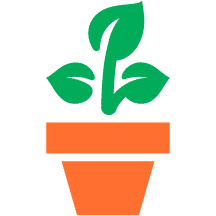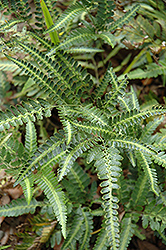24 inches
28 inches


East Indian Holly Fern
Holly Fern is primarily valued in the home for its cascading habit of growth. Its attractive ferny compound leaves emerge light green, turning forest green in color throughout the year.
This is an herbaceous evergreen houseplant with a shapely form and gracefully arching foliage. Its relatively fine texture sets it apart from other indoor plants with less refined foliage. This plant may benefit from an occasional pruning to look its best.
When grown indoors, Holly Fern can be expected to grow to be about 24 inches tall at maturity, with a spread of 28 inches. It grows at a medium rate, and under ideal conditions can be expected to live for approximately 15 years. This houseplant performs well in both bright or indirect sunlight and strong artificial light, and can therefore be situated in almost any well-lit room or location. It requires an evenly moist well-drained soil for optimal growth, but will suffer if left to grow in standing water. The surface of the soil shouldn't be allowed to dry out completely, and so you should expect to water this plant once and possibly even twice each week. Be aware that your particular watering schedule may vary depending on its location in the room, the pot size, plant size and other conditions; if in doubt, ask one of our experts in the store for advice. It is particular about its soil conditions, with a strong preference for rich, acidic soil. Contact the store for specific recommendations on pre-mixed potting soil for this plant. Be warned that parts of this plant are known to be toxic to humans and animals, so special care should be exercised if growing it around children and pets.
There are many factors that will affect the ultimate height, spread and overall performance of a plant when grown indoors; among them, the size of the pot it's growing in, the amount of light it receives, watering frequency, the pruning regimen and repotting schedule. Use the information described here as a guideline only; individual performance can and will vary. Please contact the store to speak with one of our experts if you are interested in further details concerning recommendations on pot size, watering, pruning, repotting, etc.
-- THIS IS A HOUSEPLANT AND IS NOT MEANT TO SURVIVE THE WINTER OUTDOORS IN OUR CLIMATE --













